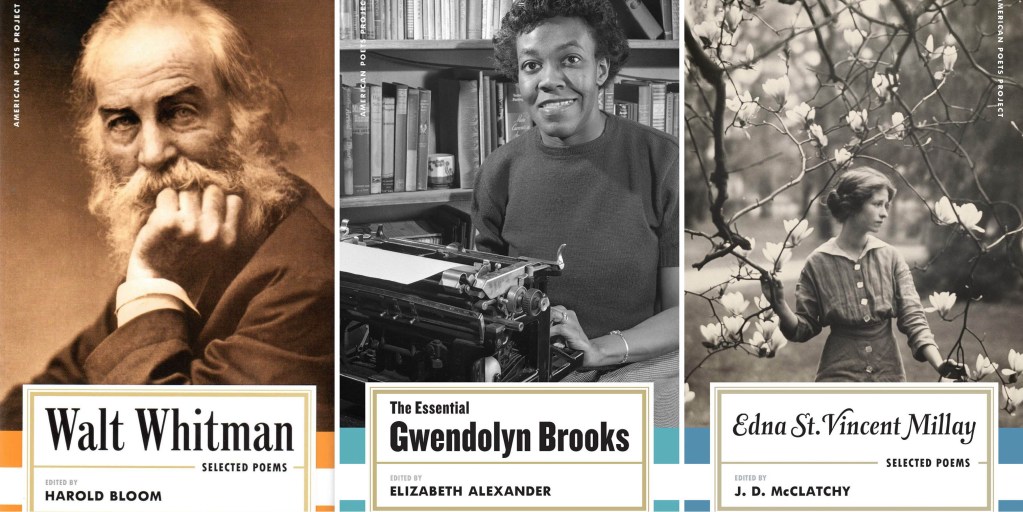“We have been thinking for a while about expanding our publishing to serve the areas of American letters that our main series can’t,” Library of America publisher Max Rudin said when the American Poets Project launched back in 2003. Now at 32 volumes, the series offers an eccentric and largely gratifying look at many of the lesser lights of American poetry.
To be sure, the American Poets Project does include canonical poets such as Walt Whitman and William Carlos Williams, but its focus is on writers who have been neglected or aren’t easily categorized.
Among the poets with faded reputations to be enshrined in the handsomely designed series are Emma Lazarus, Yvor Winters, Kenneth Fearing, and Karl Shapiro. Sometimes the verse of these minor poets feels justly overlooked, but I read with renewed enthusiasm the work of Stephen Crane, Carl Sandburg, Edna St. Vincent Millay, Countee Cullen, and Muriel Rukeyser. And whether or not the poet is familiar, the compactness of the books — less than 5 by 8 inches in size and usually fewer than 200 pages in length — makes the work feel inviting and approachable.
Granted, a couple of writers in the American Poets Project, Edith Wharton and James Agee, are better known for their prose than poetry — and deservedly so, it must be said. Moreover, it can be odd to read the work of an unquestionably major poet like Whitman or Williams against a less accomplished contemporary, such as John Greenleaf Whittier or Amy Lowell. However, even this disjunction can be instructive, as we realize not only how the poets differ in their power of invention, but also how many political, social, and cultural issues they write about in common.
One of the most surprising facets of the series is the inclusion of songwriters, although this is a mixed blessing. Some of the “Plantation Melodies” in Stephen Foster & Co., for instance, are, in the words of the book’s own editor, Ken Emerson, “abhorrent.” Fortunately, the lyrics of Ira Gershwin and Cole Porter remain clever and charming even without their musical accompaniment.
Another boon of the American Poets Project is its sterling group of anthologies, including American Sonnets, Poems from the Women’s Movement, Poets of the Civil War, and Poets of World War II. My favorite is American Wits: An Anthology of Light Verse, which features myriad delights, such as XJ Kennedy’s “Literary Cocktail Party”: “Abuse pours in on all who leave the room, / Ill nature so abhors a vacuum.”
Appropriately, the series also includes two poets — Anne Stevenson and Samuel Menashe — who have been awarded the “Neglected Masters Award.” Menashe’s lovely “Peace,” reads, in its entirety, “As I lie on the rock / With my eyes closed / Absorbed by the sun / A creak of oarlocks / Comes into the cove.” “Peace” is a poem I’d never encountered, and Menashe a poet I only vaguely knew of, making him and his work the perfect example of the sort of treasure one finds scattered in abundance throughout the American Poets Project.

